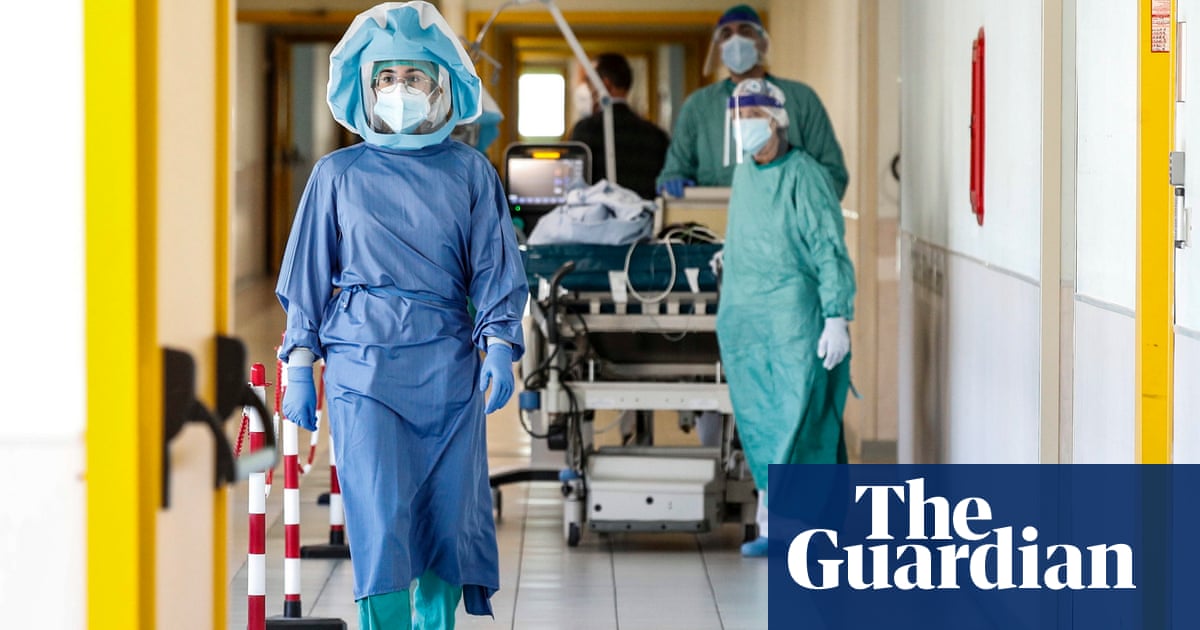
Italy will carry out an inquiry into its handling of the coronavirus pandemic in a move hailed as “a great victory” by the relatives of people killed by the virus but criticised by those who were in power at the time.
Italy was the first western country to report an outbreak and has the second highest Covid-related death toll to date in Europe, at more than 196,000. Only the UK’s death toll is higher.
The creation of a commission to examine “the government’s actions and the measures adopted by it to prevent and address the Covid-19 epidemiological emergency” was approved by the lower house of parliament after passing in the senate.
A Covid-19 inquiry was among the election campaign pledges of the prime minister, Giorgia Meloni, whose far-right government came to power in October 2022.
Victims’ families had protested against an inquiry proposal by the previous administration, a vast coalition led by Mario Draghi, after attempts were made by the centre-left Democratic party (PD) and the League, which governs the worst-hit Lombardy region, to narrow its scope by focusing only on the outbreak in China and introducing a cutoff date of 31 January 2020, therefore not examining the scramble by the Italian government to contain rapidly rising infections and deaths in the weeks that followed.
Consuelo Locati, a lawyer representing hundreds of families who brought legal proceedings against former leaders, said: “The families were the first to ask for a commission and so for us this is a great victory. The commission is important because it has the task, at least on paper, to analyse what went wrong and the errors committed so as not to repeat the massacre we all suffered.”
The commission will investigate the actions of individuals including Giuseppe Conte, the former prime minister, Roberto Speranza, the former health minister, and Attilio Fontana, the president of Lombardy.
Conte, who now leads the Five Star Movement, which at the time was in government with the PD, accused Meloni’s government of “cowardice” and of creating “an abnormal tool” to politically attack its predecessors. “But you will not govern for life and this could prove to be a dangerous precedent,” he said, adding that he had “nothing to hide”.
Speranza claimed the objective of the commission was not to make the healthcare system more resilient but to vilify the former government.
In June last year, prosecutors in Bergamo, the Lombardy province heavily hit by Covid-19 at the start of the pandemic, shelved an investigation into Conte and Speranza’s management of the emergency after they found no evidence connecting the deaths to their failure to swiftly adopt measures to contain the escalating virus.
Italy’s first coronavirus case was confirmed in Codogno in southern Lombardy on 21 February 2020. Two days later, an outbreak occurred at the hospital in Alzano Lombardo, a town in Bergamo. However, unlike Codogno, where quarantine measures were implemented immediately along with nine other towns in Lombardy and one in Veneto, Bergamo went into lockdown with the entire Lombardy region two weeks later.
A case brought by relatives of the deceased at Rome’s civil court is ongoing. The court is examining the same evidence that Bergamo prosecutors did, including the alleged absence of an updated national pandemic plan. “The difference with the Rome case is that there will definitely be a sentence, which will either go in our favour or not,” said Locati, whose father was among those to die early in the pandemic.












